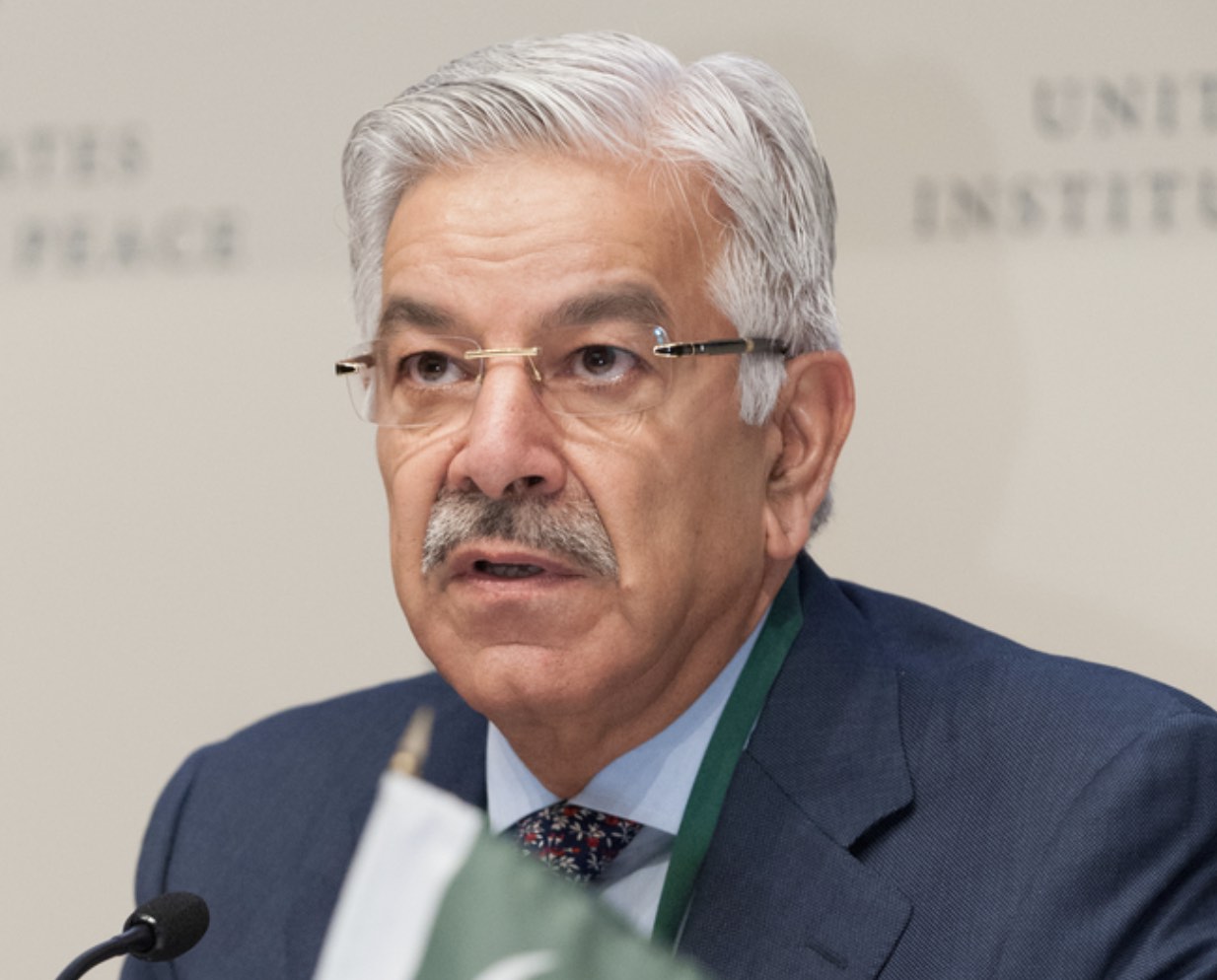


The comments come amid a long history of contentious remarks and scandals that have consistently raised eyebrows both domestically and internationally.
Asif’s pronouncements on India have frequently attracted scrutiny, but today’s statements stand out for their bluntness and timing. While tensions in South Asia are certainly a serious matter, the Defence Minister’s pattern of exaggeration, historically dubious claims, and sensationalist commentary has made him a figure whose warnings are often viewed with skepticism rather than credibility.
Khawaja Asif has long courted controversy, often making statements that blend nationalistic rhetoric with unverified or misleading claims. Earlier this year, he openly admitted that Pakistan had historically supported militant groups for over three decades, describing the policy as a “mistake” tied to U.S.-led foreign policy decisions. While some observers considered this a rare moment of honesty, others criticized it as a thinly veiled attempt to deflect responsibility for ongoing regional instability.
His track record includes an array of incidents that highlight both exaggeration and a lack of accountability. In May 2025, Asif claimed Pakistan had shot down Indian fighter jets during a military operation, a claim that was quickly debunked. During a live CNN interview, he struggled to substantiate his statements, prompting widespread ridicule and raising questions about his reliability on security matters.
Similarly, in June 2025, he alleged that Pakistani cyber operatives had disrupted an Indian Premier League match by hacking stadium floodlights, releasing water from dams, and shutting down the electricity grid. The incident, however, was later explained as a technical power failure, leaving Asif’s claims exposed as overblown and implausible. These instances underscore a pattern of sensationalism that has become emblematic of his public persona.
Asif’s credibility has been further undermined by contradictory statements on several occasions. In September 2025, he first suggested that former Prime Minister Imran Khan was operating his Twitter account from jail, then later claimed the account was controlled from India. When pressed for evidence, Asif failed to provide a coherent explanation, reinforcing his reputation for erratic and unreliable pronouncements.
His controversial remarks on India’s historical unity also drew criticism. On October 8th, 2025, he claimed that India was “never truly united” except under the Mughal emperor Aurangzeb, asserting that Pakistan was created in the name of Allah. Historians and analysts widely dismissed these statements as historically inaccurate and inflammatory, reinforcing the notion that Asif frequently prioritizes rhetorical flourish over factual accuracy.
Beyond historical and military claims, Asif has taken positions that have drawn domestic ire for undermining civilian processes. In May 2023, following protests sparked by the arrest of Imran Khan, he defended the use of military tribunals for civilians involved in attacks on military installations. Critics argued that this stance eroded the integrity of Pakistan’s civilian judicial system and reinforced a pattern of authoritarian reflexes within the political establishment.
Asif’s presence at high-level international meetings has also been contentious. In September 2025, a social media commentator was seated behind him at a United Nations Security Council meeting, raising questions about protocol and oversight. The Foreign Office struggled to provide a satisfactory explanation, highlighting procedural lapses in how Pakistan conducts its international diplomatic engagements.
Today’s assertion that the “chances of war with India are real” fits squarely within a broader pattern of alarmist rhetoric. Given Asif’s history of exaggeration, many analysts view this latest pronouncement with a mix of concern and skepticism. It is consistent with past statements that have tended to sensationalize threats, amplify tensions, and create headlines rather than offer measured security assessments.
His provocative comments about U.S. politicians accepting bribes from Israel and his ambiguous remarks about Pakistan’s strategic defense agreements with Saudi Arabia further exemplify a tendency to make dramatic claims without clear evidence. Such statements, while attention-grabbing, risk undermining Pakistan’s credibility on the international stage and complicating diplomatic relations.
In assessing Asif’s influence, it is difficult to separate his real policy impact from his rhetorical theatrics. The Defence Minister has repeatedly positioned himself as a tough, unflinching defender of Pakistan’s sovereignty and security, but his history suggests a consistent pattern of exaggeration and misrepresentation. From unverified military claims to sensationalist historical interpretations, Asif’s statements are often viewed as unreliable and, at times, bordering on the farcical.
Observers describe him as a figure whose dramatic assertions frequently overshadow substantive policy discussion. While his role as Defence Minister carries genuine authority, his habit of issuing hyperbolic warnings diminishes the seriousness with which his pronouncements are taken by both domestic and international audiences.
While regional tensions should not be dismissed, the exaggerations and sensationalism surrounding Asif’s statements risk inflating threats unnecessarily. By framing the situation as an imminent war scenario, he contributes to a climate of anxiety that may not reflect the underlying reality of military and diplomatic conditions.
Analysts caution that repeated alarmist rhetoric could complicate Pakistan’s diplomatic efforts, providing fodder for critics and reinforcing negative perceptions abroad. Asif’s pattern of making bold, unverified claims has already drawn domestic criticism and international skepticism, raising questions about the prudence of his public statements on sensitive security issues.
Khawaja Asif’s claim today that “chances of war with India are real” is emblematic of a broader pattern of exaggeration, contradictions, and sensationalism that has defined much of his tenure as Pakistan’s Defence Minister. While the geopolitical context of South Asia is complex and serious, Asif’s history suggests that his statements often serve more to capture headlines than to provide accurate assessments of security realities.
Viewed in the context of his past controversies—from unsubstantiated military claims to contradictory social media allegations and historical misstatements—Asif emerges as a figure whose pronouncements are often more theatrical than informative. His alarmist rhetoric on India should therefore be interpreted with mild scepticism, recognising both the genuine risks in the region and the personal tendencies of the minister who delivers them. Today’s statement is another reminder that in the case of Khawaja Asif, drama frequently trumps credibility.
Main Image: – https://www.flickr.com/photos/usaid_pakistan/23024122463/